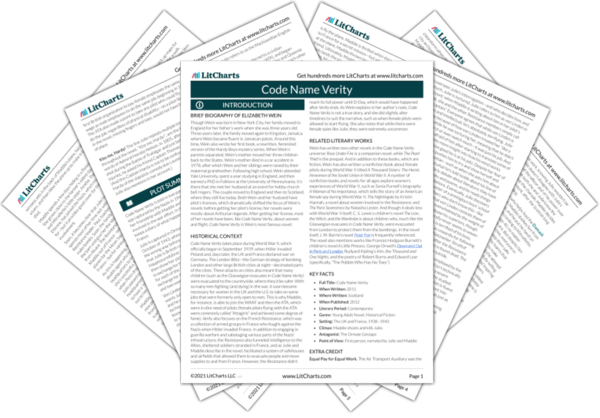Previous
Part 1: Ormaie 18.XI.43 JB-S
|
Previous
Part 1: Ormaie 18.XI.43 JB-S
|
Code Name Verity: Part 1: Ormaie 20.XI.43 JB-S Summary & Analysis |
Next
Part 1: Ormaie 21.XI.43 JB-S
|


Upgrade to unlock the analysis and theme tracking for all of Code Name VerityCode Name Verity!
Get LitCharts A+